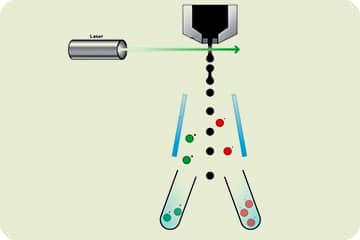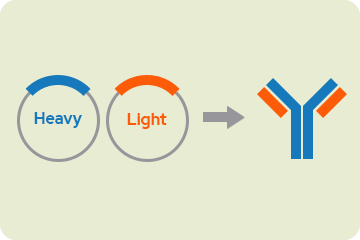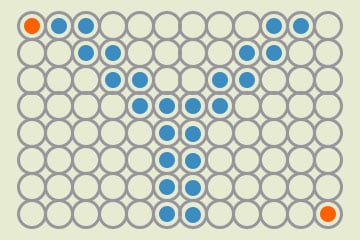Rabbit monoclonal antibody service
Exonbio offers custom Rabbit Monoclonal Antibody development services using SPIN® (Single Plasma cell INterrogation) Technology. This proprietary technology screens the immune repertoire of rabbits, creating the power to select desired rare antibodies directly from affinity-matured plasma cells.
Benefits
High affinity and specificity
Rabbit monoclonal antibodies consistently demonstrate Kd values that can reach the picomolar level (KD = 10−12M)
Improved immune response to small-size epitopes
Rabbit’s immune system allows them to develop antibodies against small moieties in small molecules, lipids, and polymers, or subtle changes in epitopes such as post-translational modifications or single amino acid substitutions.
Eliminate cross reactive clones
Lower chance of cross-reacting with other proteins as they only detect a single epitope and bind to the target with greater affinity.
More diverse epitope recognition
Lower immunodominance, extensive somatic gene conversion, and hypermutation that characterizes the rabbit immune response result in a more diverse epitope recognition
Benefits
High affinity and specificity
Rabbit monoclonal antibodies consistently demonstrate Kd values that can reach the picomolar level (KD = 10-12 M)
More diverse epitope recognition
Lower immunodominance, extensive somatic gene conversion, and hypermutation that characterizes the rabbit immune response results in a more diverse epitope recognition
Improved immune response to small-size epitopes
Rabbit’s immune system allows them to develop antibodies against small moieties in small molecules, lipids, and polymers, or subtle changes in epitopes such as post-translational modifications or single amino acid substitutions.
Low background noise
Lower chance of cross reacting with other proteins as they only detect a single epitope and bind to the target with greater affinity
Rabbit vs. Mouse Monoclonal Antibodies
Antigen recognition
Affinity
Applications
Mouse
· Limited response to small molecules and peptides
· Narrow spectrum of epitope recognition
· No response to rodent antigens
Nanomolar (10-9M)
Not excellent for IHC, ICC
Rabbit
· High response to small molecules and peptides
· Identifies multiple epitopes per target antigen
Picomolar (10-12M)
Excellent for IHC and ICC
Antigen recognition
Affinity
Applications
Timelines
78 Days
Phase 1
Immunization
Immunization

2 Days
Phase 2
Isolation of plasma cells
Isolation of plasma cells

7 Days
Phase 3
Cloning and expression
Cloning and expression

11 Days
Phase 4
Screening and selection
Screening and selection

Deliverables
| Phase I | Timeline | Deliverables |
|---|---|---|
| Rabbit immunization | 2-3 months | ELISA data |
| Phase II | Timeline | Deliverables |
|---|---|---|
| Splenectomy and lymphocyte isolation | ||
First screening with FACS (> a million B cells)
|
2 weeks | |
| Supernatant production, and Secondary screening | 1 week | ELISA data |
| Phase III | Timeline | Deliverables |
|---|---|---|
|
3 weeks | Purified Antibody |